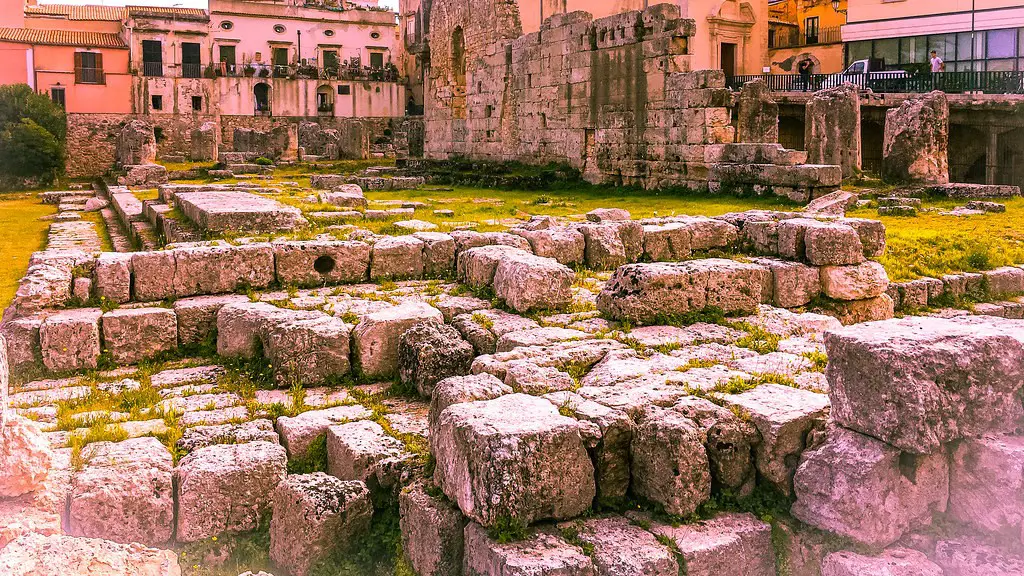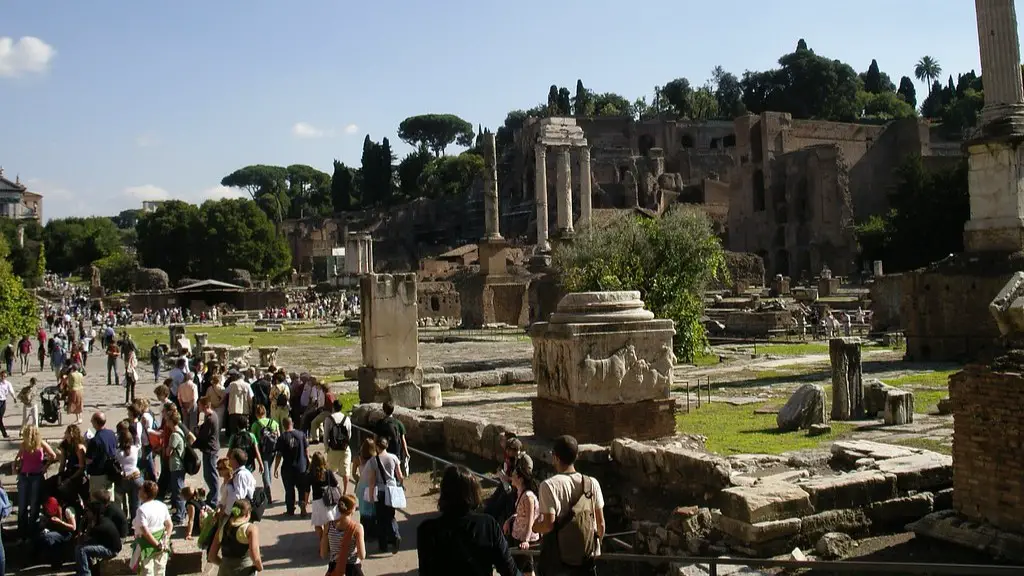Ancient Rome was a major power in the Ancient World, but its connections and relations with other states were not always good and beneficial. Through expansion and conquest, Rome incited fear and resentment among its neighbours and allies. This essay will explore the reasons why Rome’s connections and relations with other states were generally not good.
Rome was an aggressive and militaristic state, expanding its territory by conquest and annexation. This led to a culture of brutality and cruelty, a practice which Rome was known for and which deeply affected its neighbours. Roman soldiers raided neighbouring states, seizing goods and enslaving the people they encountered. This ruthless behaviour caused fear and resentment in those captured and their families. In addition, Rome imposed heavy taxes, leading to financial strain and social upheaval in the conquered states. This behavior from Rome was seen as unjust and oppressive, and caused further resentment.
The Roman military was feared for its highly organised structure, efficient tactics and powerful weaponry. This was a potent combination for conquering other states, but it inevitably aroused suspicion and hostility towards Rome. Rome’s dealings with other states were often seen as arrogant and disrespectful. This lack of consideration for other nations put Rome at odds with its neighbours.
The Romans also used their military might to expand their political influence. They imposed their own structure and laws on newly conquered states and subjected them to Roman control. This was done without regard for the individual characteristics of each state and its people. This created a situation of domination, creating further resentment and mistrust towards Rome’s motives.
Rome’s foreign policy was known for its unpredictability and lack of consistency. It was difficult for other states to comprehend and trust Rome’s intentions and motivations. This lack of consistency in its foreign policy meant that Rome was often suspected of trying to exploit or manipulate other states. This made them a difficult and at times dangerous neighbour.
Inevitably, Rome’s relations with other states were seen as oppressive and threatening. Its militaristic approach to expansion and domination of other states created an atmosphere of fear, mistrust and resentment. This led to hostility and tension between Rome and its neighbours, which only deepened over time.
Perceived threat of Roman Empire
The Roman Empire had the ability to field a formidable army, boasting the best weaponry, strategic tactics and loyal soldiers. A major source of fear and mistrust was the perceived threat of a Roman invasion which meant that neighbouring states were on edge. They were unable to predict when or where Rome would strike, creating an atmosphere of fear and insecurity. This was compounded by Rome’s practice of annexing newly conquered territories, depriving many of their territories and taking away their autonomy. This created an atmosphere of oppression and domination, leading to resentment and hostility towards Rome.
Rome’s Repressive Policies
Rome was known for its repressive policies towards its neighbours. These policies included forced displacement, destruction of property, heavy taxes and enslavement of the conquered people. These measures were oppressive and caused resentment among those who were forced to endure them. Rome was also known for its double standards, consistently punishing others for similar crimes yet not facing consequences for its own actions. This was seen as unjust and caused further distrust of the Roman Empire.
Varied Enemy Perception
Different populations had varied perception of Rome. Some saw them as a beacon of light and an example of civilisation, others saw them as a bitter enemy. This ambivalent attitude towards the Romans shows how complex the situation was. Rome’s own citizens found it difficult to sympathise with those under their control and those from other cultures found it difficult to accept Rome’s domination.
Rome’s Political Influence
Rome had a powerful political influence, using its military power to spread its own structure and laws. This was done without regard for the individual characteristics of each state, creating resentment and a sense of injustice. Rome was also known for using bribery and corruption to gain favour in other states, creating further distrust of Rome’s motives.
Roman Oppression and Exploitation
Rome was known for its oppressive attitude towards conquered lands, treating them as a source of resources and labour. This had a devastating effect on the people of those lands and caused further resentment towards Rome. The Romans were also accused of exploiting the resources of other states and using them for their own benefit. This further increased mistrust and animosity towards the Roman Empire.
Roman Generosity
However, it is not all doom and gloom regarding Rome’s relations with other states. Despite its bellicose nature, Rome was also known for its generosity and culture. Rome introduced new technologies and ideas to other states, spreading its influence and culture. The Romans often provided aid to those suffering through famine and natural disasters, cementing its reputation as a generous provider of aid and resources. This ultimately forged more positive connections between Rome and its neighbours and shows the complexity of Rome’s diplomatic relations.



